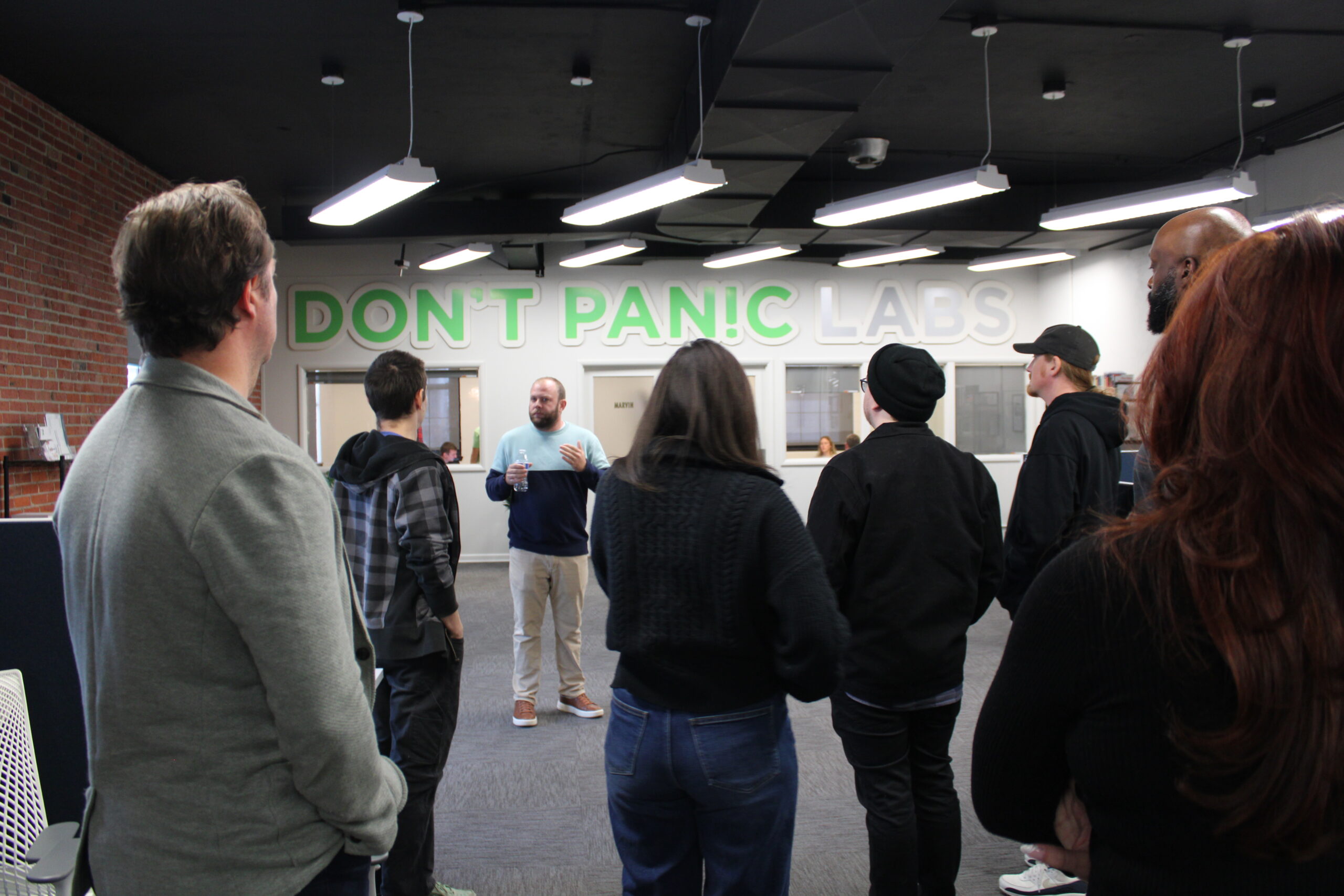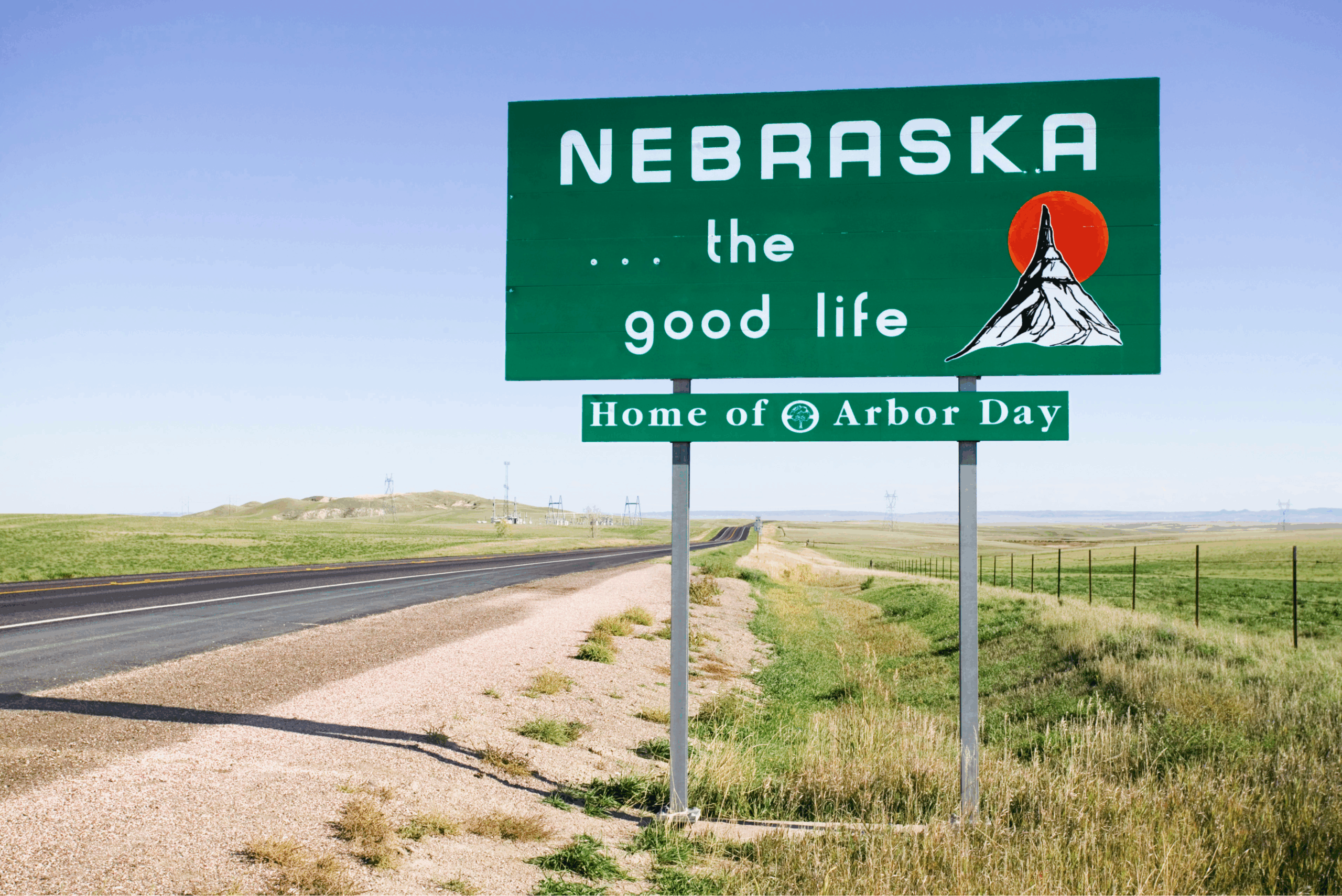
AOL co-founder Steve Case discussed the role of entrepreneurship in the past, present and future of the U.S. today at Thinc Iowa.
As the co-founder and former chief executive officer of AOL, the co-founder and CEO of investment firm Revolution and the chairman of the Startup America Partnership — to name just a few of his endeavors — Steve Case has a résumé that could make even the most serial of entrepreneurs blush.
But when Case took the stage on Wednesday at the The Temple for Performing Arts to deliver his Thinc Iowa presentation, he eschewed the opportunity to shine the spotlight squarely on his own career. Instead, he used his own story to complement a narrative about the role entrepreneurship has played in the United States.
“We became the leading economy, we became the leader of the free world as some say, because of the work not just of the pioneers — Washington and Jefferson, all these great pioneers that built democracy — but also because (of) the great entrepreneurs that built the economy,” Case said.
He proceeded to examine entrepreneurship in the U.S. — its rich history, its current challenges, its future potential — and complement that discussion with a healthy dose of observations and anecdotes from his own endeavors.
Entrepreneurial path to prosperity
The run the U.S. has enjoyed as a global hegemon can be attributed in large part to the work of entrepreneurs, Case said.
“This country did not become the leading economy in the world by accident,” he said. “We didn’t just wake up one day and we were the leading economy.”
He cited examples of American success stories ranging from the auto boom in Detroit decades ago to companies like Chipotle, Under Armour and Facebook that are thriving today. But despite a long run of economic prosperity fueled in large part by entrepreneurs, Case said, the U.S. is at a crossroads.
“There’s a fear now that other countries around the world are kind of stepping up their game,” he said, “kind of stealing the American special sauce around entrepreneurship.”
Doubling down on entrepreneurship
Despite some cause for concern, there’s also reason for optimism, Case said.
In his work with the Startup America Partnership, Case helps steer an organization that aims to make the road smoother and future brighter for entrepreneurs in this country.
“As a nation, it’s important that we double down on entrepreneurship and make sure that we have the right policies in place,” he said.
Case cited the importance of legislation regarding crowdfunding and high-skilled immigrants, but he said other pro-entrepreneurship measures are out of the government’s hands.
That’s a gap the Startup America Partnership, founded a year and a half ago, tries to help fill, asking entrepreneurs, “What can we do to make it a little easier?”
Case said that Iowa has been a poster child with its efforts on the organization’s behalf. “I’m pleased to report that StartupIowa is viewed as one of the hottest regions in the country,” he said, drawing a loud ovation from the crowd.
From 200,000 to 20 million
To hear the story of Case’s greatest entrepreneurial success is to understand his fervor for supporting startups.
“All great ideas start as weird ideas,” he said. “What now seems obvious, early on, is not obvious to anybody.”
Like, say, AOL.
Case helped start the company at a time when personal computers were somewhat rare and PCs equipped with modems were even harder to come by. A paltry three percent of people in the U.S. were online when Case co-founded AOL in 1985. The idea of connecting with other people via a computer was completely foreign to most.
For years, funding conversations and user-acquisition efforts plodded along at a snail’s pace. Most people thought Case and his crew were crazy; some outright suggested that they should give up.
“There was a whole series of things that led most people in 1985 to conclude, ‘People don’t really want to get online. You guys at AOL are just wrong,’ ” Case recalled. “And for almost a decade, all the evidence actually suggested that they were right, because for a decade we struggled.”
When AOL went public in 1992, it had fewer than 200,000 customers. Then: the explosion. Within seven years of going public, Case said, AOL’s customer base had grown to 20 million.
A revolution brewing
Case had a hand in one internet revolution with his work at AOL, and he’s currently trying to incite another.
“The second internet revolution is not so much about creating new internet companies,” Case said, ” … but rather using the ubiquity and particularly the mobility of the internet … to transform other important aspects of everyday life.”
He sees education and health care as sectors ripe for disruption. He asserts that steering away from the well-worn path is a great way to find innovation. He follows an investment philosophy of “fishing in ponds where there’s fewer people fishing.” He believes in playing the long game — which, given AOL’s trajectory, should come as no surprise.
But Case is only one man. One of considerable means and an attention-commanding track record, yes — but still, only one man. He believes that for U.S. entrepreneurs now and in the future to enjoy the same success as they have throughout the country’s history, it will take a village.
“Everybody can support them in different kind of ways and everybody has to decide what contribution they can make,” Case said. “But recognizing this is a core part of what’s made America great and needs to continue to make America great is critically important.”
Credits: Photos by Anna Jones and Phillip Harder.
Thinc Iowa is a premiere event produced by Silicon Prairie News. For live video of Thinc Iowa 2012, tune in at spne.ws/live from 9 a.m.-5:30 p.m. Oct. 10 and 11. For more on Thinc Iowa, check out the conference on Twitter and Facebook.


